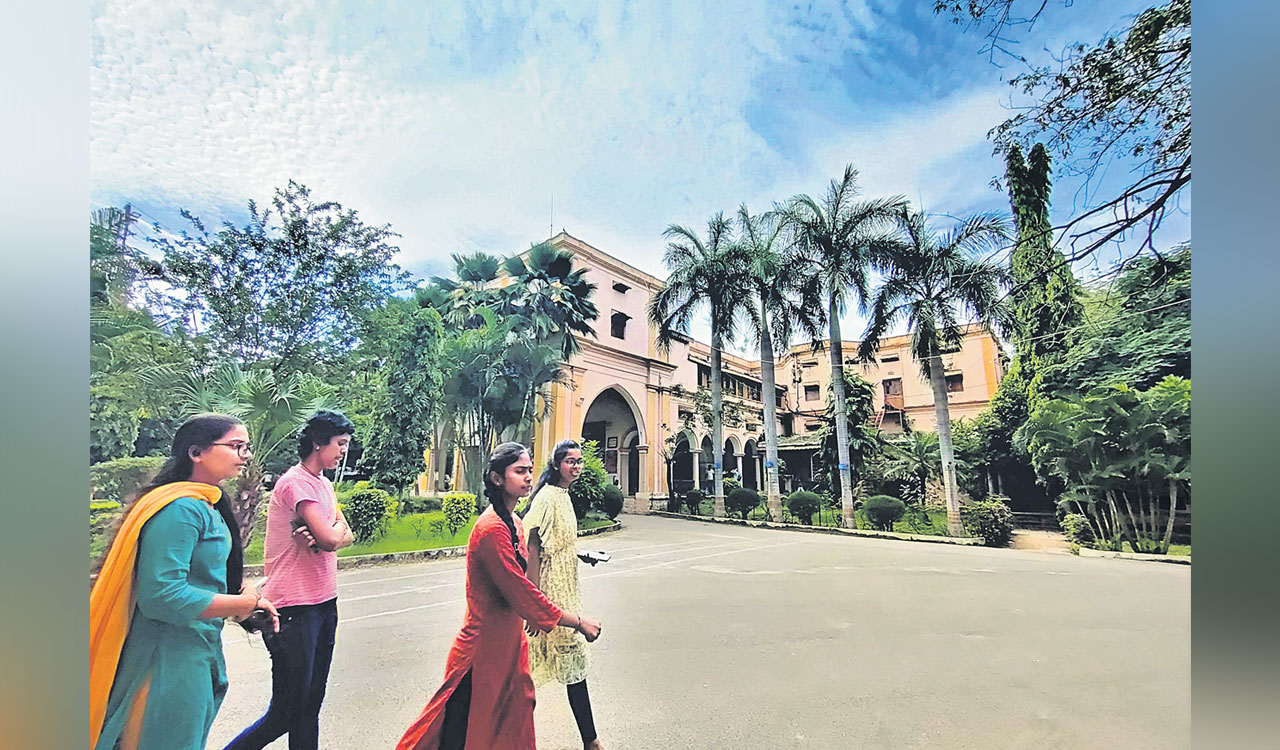
The evaluation system in the degree programme will become robust with focus on experiential and applied learning while doing away with the age-old practice of rote-learning method
Published Date - 06:40 AM, Thu - 14 September 23
Hyderabad: From attendance, field visits, project studies, internships, industry visits, quiz, portfolios to online simulations, all the areas will carry weightage in the total marks or credits in the conventional degree courses from this academic year.
The evaluation system in the degree programme will become robust with focus on experiential and applied learning while doing away with the age-old practice of rote-learning method.
The Telangana State Council of Higher Education (TSCHE) along with State universities will be putting a new evaluation system in place that equally emphasises on the formative assessment, which includes quizzes and discussion, reports, live projects, group projects, internship, and industry visits.
Currently, 30 marks are earmarked for the formative assessment and 70 marks for the end-semester examinations. Over a period of time, this percentage of marks will be tweaked, with both assessments receiving equal weightage i.e. 50:50.
These are some of the several recommendations made by the Indian School of Business (ISB) experts, who were tasked by the TSCHE to study the assessment and evaluation systems in higher education in the State. The report is based on the survey conducted in 14 colleges (six urban and eight rural), four aided and 10 State-run. Four autonomous colleges were also part of the sample. Additionally, a questionnaire survey was administered to over a sample of 3,322 students and 909 teachers.
In its report, the ISB pitched for the introduction of the continuous and comprehensive evaluation system. The experts strongly advocated for moving from “assessment for learning” to “assessment as learning”.
The experts advised the TSCHE and State universities to adopt the Bloom’s Taxonomy, a framework for organising educational goals and objectives into different levels of cognitive complexity, as every student has a way of learning and understanding. The taxonomy has six levels of cognitive skills: Remembering, Understanding, Applying,
Analysing, Evaluating and Creating. This will be used to prepare question papers and assignments.
The ISB pitched for the setting up of Centres for Innovation in Evaluation and Assessment in each university. These centres will conduct research to introduce new methods of evaluation and assessment to test understanding and application as opposed to ‘rote-learning’.
“As suggested in the ISB report, a new evaluation system will be implemented from the present academic year. Attendance, quiz, group discussion, and portfolios will also carry weightage in the assessment. We will also establish Centres for Innovation in Evaluation and Assessment for implementing the new evaluation system,” TSCHE Chairman Prof R Limbadri told ‘Telangana Today’.





Leave a Reply